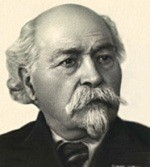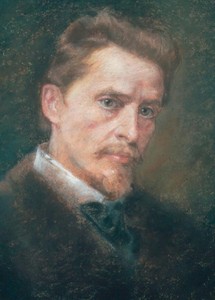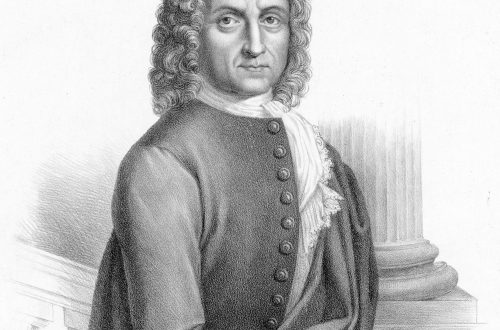
Dimitri Ignatievich Arakishvili (Arakchiev) (Dimitry Arakishvili) |
Dimitry Arakishvili

Soviet composer, musicologist-ethnographer, public figure. Nar. art. Cargo. SSR (1929). Academician of the Academy of Sciences of Georgia. SSR (1950). One of the founders of cargo. nat. music schools. In 1901 he graduated from the musical-dramatic. school Mosk. Philharmonic Society in the composition class of A. A. Ilyinsky; theoretical studied subjects with S. N. Kruglikov; in composition he improved with A. T. Grechaninov (1910-11). In 1917 he graduated from Moscow. archaeological in-t. From 1897 he performed in Russian. and cargo. music press. Member since 1901 Music-ethnographic. commissions at Moscow. un-those, from 1907 – Moscow. Georgian Society of Literature and Art. Communication with S. I. Taneyev, M. E. Pyatnitsky, A. S. Arensky, M. M. Ippolitov-Ivanov determined the progressive nature of musical societies. activities of Arakishvili – one of the organizers of the Moscow. nar. conservatory (1906), free music. classes of the Arbat district. In 1908-12 the editor of the Moscow. magazine “Music and Life”.
In 1901-08, Arakishvili repeatedly traveled to Georgia to record Nar. music. Published the works that laid the scientific. cargo basis. music folkloristics (“A Brief Essay on the Development of the Georgian Kartalino-Kakheti Folk Song”, M., 1905; “Folk Song of Western Georgia (Imereti)”, M., 1908; “Georgian Folk Musical Creativity”, M., 1916). In 1914, in the Proceedings of the Musical and Ethnographic. Commission Arakishvili placed 14 cargo handling. nar. songs. (In total, he published over 500 samples of Georgian vocals and instruments of folk melodies.) In 1910, the choir performed at the 3rd All-Russian Congress. figures with a report on the organization of “Free Conservatories”.
The most important stage in Arakishvili’s activity begins after he moved to Georgia in 1918. He was one of the founders of the Second Conservatory in Tbilisi (1921), which merged with the First Conservatory in 1923; here Arakishvili was a professor, director, organizer of music. worker’s faculty, diff. performing teams. He acted as a conductor in the symphony. concerts. Arakishvili – the first (1932-34) Union of Composers of Georgia.
Creativity Arakishvili played a big role in the development of prof. music culture of Georgia. The creation of cargo is connected with the activities of Arakishvili. classical romance (Arakishvili wrote about 80 romances). In this genre, the best sides of the muses were revealed. Arakishvili’s style – soft lyricism, melodic. expressiveness. The intonation basis of Arakishvili’s creativity is cargo. nar. music, prim. urban. He owns romances to texts by A. S. Pushkin (“On the hills of Georgia”, “Do not sing, beauty, in front of me”), A. A. Fet (“Quiet Starry Night”, “In Hand with a Tambourine”), Khafiz ( “Start up, flap your wings”) and other poets. In the romances “Deaf Midnight”, “Dawn”, “About Arobnaya” to the texts of Kuchishvili, Arakishvili recreated the images of the old load. villages. The theme of the power of the socialist. songs are devoted to labor: “New arrobnaya”, “I rejoice”, “Noon at the factory”, “Labor song”, etc.
Arakishvili is the creator of one of the first cargo. operas – “The Legend of Shota Rustaveli” (1919, Tbilisi). The opera is dominated by the romance-ario style, in the overture and otd. The rooms vividly recreate the cargo. nat. coloring.
Compositions: comic opera – Dinara (Life is joy, 1926, Tbilisi; revised by N. I. Gudiashvili into a musical comedy, 1956, Tbilisi Musical Comedy Theater); for orc. – 3 symphonies (1934, 1942, 1951); symp. painting Hymn to Ormuzd, or Among the Sazandars (1911); music for the film “Shield of Dzhurgay” (Gos. Pr. USSR, 1950), etc.
Literary works (in Georgian): Georgian music – a brief historical overview, Kutaisi, 1925; Description and measurement of folk musical instruments of Georgia, Tb., 1940; Review of folk songs of Eastern Georgia, Tb., 1948; Racha folk songs, Tb., 1950.
Literature: Begidzhanov A., D. I. Arakishvili, M., 1953.
A. G. Begidzhanov





